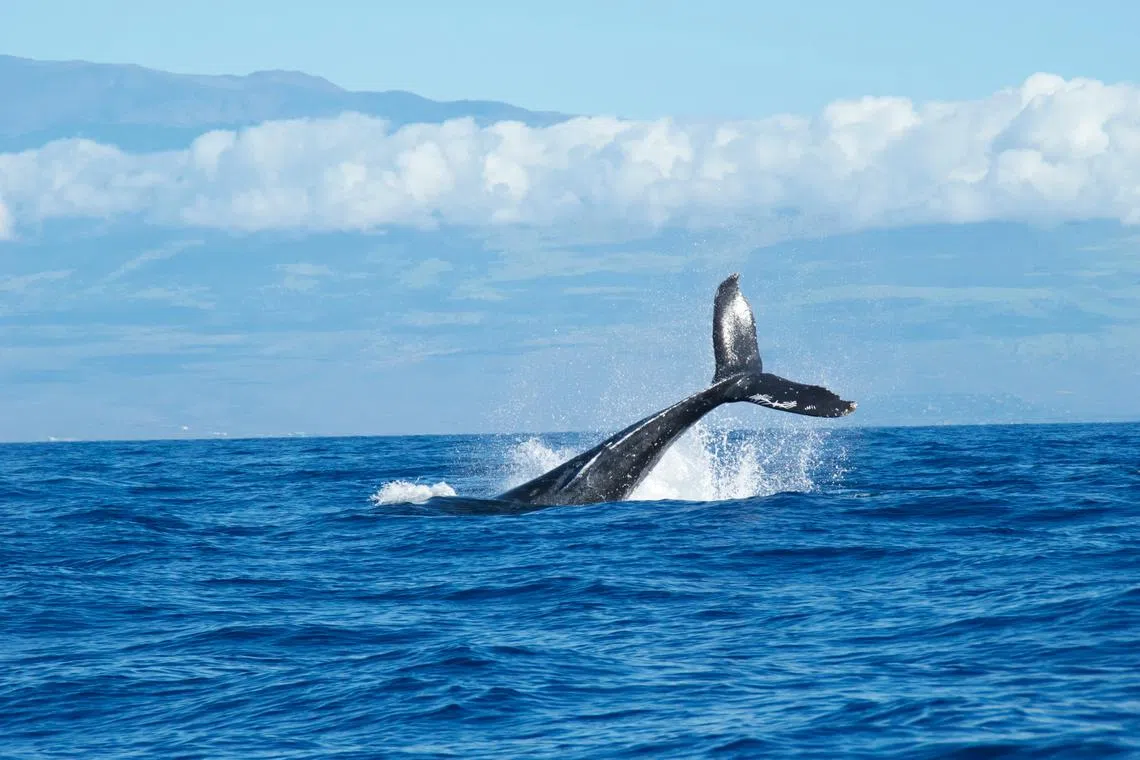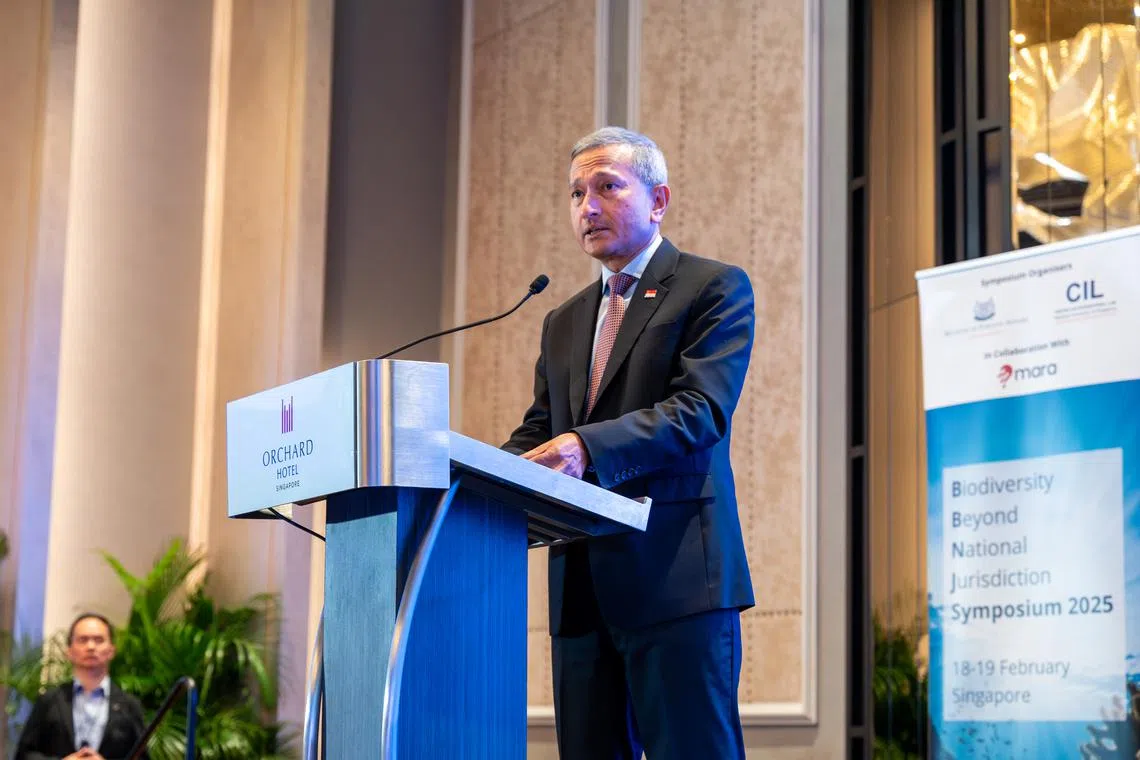Ratify the High Seas Treaty for national reasons, and for the planet: Vivian
Sign up now: Get ST's newsletters delivered to your inbox

The High Seas Treaty paves the way for ecosystems and biodiversity in the high seas to be safeguarded.
PHOTO ILLUSTRATION: UNSPLASH
Follow topic:
SINGAPORE - Countries should ratify the High Seas Treaty, a UN agreement designed to protect life in marine areas beyond national jurisdictions, for their own national reasons, as well as collectively on behalf of the entire planet, said Foreign Minister Vivian Balakrishnan on Feb 18.
Ensuring the health of the oceans is critical for countries, he said during a conference on the high seas, pointing to the role of oceans in regulating the climate.
Oceans also facilitate maritime connectivity, he added.
“The effective implementation of the agreement is necessary if we are going to have a real impact on conservation and the sustainable use of our oceans,” he said.
But he noted that there is “still a long way to go” as the number of countries that have ratified the agreement is insufficient to allow it to come into force.
The High Seas Treaty, also known as the Conservation and Sustainable Use of Marine Biological Diversity of Areas beyond National Jurisdiction (BBNJ) Agreement, paves the way for ecosystems and biodiversity in the high seas to be safeguarded.
The high seas – which make up nearly two-thirds of the world’s oceans – refer to international waters located more than 200 nautical miles from any coastline.
Currently, only about 1 per cent of this expanse is protected.
Among other things, the treaty paves the way for marine protected areas to be established in these areas.
The treaty was adopted by nations in June 2023 but will enter into force only once 60 countries have ratified it under their own domestic process.
As at Feb 18, only 17 countries out of the 108 that signed the treaty have ratified the agreement.
France and Spain ratified the treaty in early February, while Singapore did so in September 2024.
The agreement was formally adopted by the United Nations in June 2023
“I encourage all states that have already ratified the agreement to share your experiences at this symposium,” said Dr Balakrishnan at the event.
“And for those who have not yet ratified the agreement, please persuade your political leaders to do so for your own national reasons, as well as collectively on behalf of the entire planet.”
The two-day symposium on Feb 18 and 19 is organised by the NUS Centre For International Law and Ministry of Foreign Affairs.
Held at the Orchard Hotel Singapore, it is in its second iteration.
The event on Feb 18 was attended by policymakers, researchers and law practitioners, among others.
Dr Balakrishnan said that healthy oceans, which absorb plenty of planet-warming carbon dioxide, are crucial to the world’s fight against climate change.
He added that international shipping constitutes about 80 per cent of world trade, and that the world has no substitute for maritime connectivity.
“For Singapore and many other small island states, the oceans are our lifeblood. Our people, history, economies and cultures are deeply intertwined with the ocean and the fate of the oceans, and we depend upon the oceans for our survival and our prosperity,” he said.

Foreign Minister Vivian Balakrishnan said ensuring the health of the oceans is critical for countries.
PHOTO: MINISTRY OF FOREIGN AFFAIRS
He also said that the BBNJ Agreement has provisions to ensure that benefits derived from diverse marine genetic resources – which can be used for the development of medicine and pharmaceuticals – in the high seas will be shared fairly and equitably among states.
Despite their importance, oceans are increasingly under threat – from overfishing and rising temperatures.
New threats could also emerge from ocean-bed mining and the use of geoengineering technologies to boost the oceans’ capacity to absorb carbon dioxide.
The agreement could help to mitigate some of these threats, paving the way for the creation of ocean sanctuaries where fishing will be prohibited and ensuring human developments in the high seas are subject to environmental impact assessments.
As a small island city state, Singapore has always had to advocate a rules-based global order and international law, said Dr Balakrishnan, adding that the BBNJ agreement embodies multilateralism and international law.
“And this time, when the world is fractured and polarised, is in fact a time for us to double down and reaffirm these principles, and we need to get it done,” he said.
He added that Singapore remains fully committed to the conservation and sustainable use of the oceans and marine resources.
The agreement, which lays the groundwork for international collaboration to protect marine areas outside of national jurisdictions, was a treaty more than 15 years in the making, including over four years of formal talks.
Singapore helped to broker the treaty, with Ambassador for International Law Rena Lee leading the successful negotiation and adoption, by consensus, of the agreement.
Dr Balakrishnan said: “The BBNJ Agreement is important because the oceans are interconnected, and what happens beyond national jurisdiction affects all of us.”
Chin Hui Shan is a journalist covering the environment beat at The Straits Times.


